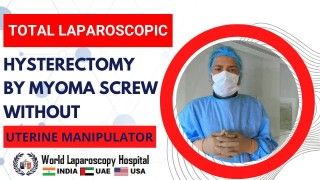Transforming Surgical Skills: Stories from World Laparoscopy Training Institute in Dubai
Add to
Share
787 views
Report
1 year ago
Description
Introduction: Surgery has evolved significantly over the years, transitioning from traditional open procedures to minimally invasive techniques. This transformation has not only improved patient outcomes but also revolutionized the way surgeons acquire and hone their skills. One prominent institution at the forefront of this transformation is the World Laparoscopy Hospital Training Institute. This article delves into the critical role played by this institute in transforming surgical skills, ultimately benefiting patients and the medical community at large. The Emergence of Minimally Invasive Surgery: Before delving into the contributions of the World Laparoscopy Hospital Training Institute, it's important to understand the backdrop against which it operates. Minimally invasive surgery (MIS) emerged as a paradigm shift in surgical practice during the latter half of the 20th century. This approach involves performing surgical procedures through small incisions or natural body openings, significantly reducing trauma, pain, and recovery time for patients. Laparoscopy, a subset of MIS, became the hallmark of this transformation, allowing surgeons to perform intricate procedures with precision through tiny incisions. The Importance of Skill Transformation: The transition from traditional open surgery to MIS demanded a transformation in surgical skills. Surgeons needed to adapt to new instruments, technologies, and techniques. Skill acquisition and proficiency in laparoscopy are not achieved overnight; they require dedicated training and practice. This is where institutions like the World Laparoscopy Hospital Training Institute come into play. World Laparoscopy Hospital Training Institute: The World Laparoscopy Hospital Training Institute, headquartered in Gurugram, India, is a globally renowned center of excellence for laparoscopic and robotic surgery training. Established in 2001 by Dr. R.K. Mishra, a visionary in the field of minimally invasive surgery, this institute has been instrumental in transforming surgical skills worldwide. Here's how: Comprehensive Training Programs: The institute offers a wide range of training programs tailored to the needs of surgeons at different stages of their careers. From beginners to experienced surgeons, each program is designed to impart the necessary knowledge and skills required for laparoscopic and robotic surgeries. World-Class Faculty: The faculty at the World Laparoscopy Hospital Training Institute comprises highly experienced and skilled surgeons who are experts in their respective fields. These mentors provide hands-on training, imparting their vast knowledge and expertise to the trainees. State-of-the-Art Facilities: The institute boasts cutting-edge surgical simulators, high-definition video equipment, and advanced laparoscopic and robotic surgery setups. These state-of-the-art facilities enable trainees to practice and refine their skills in a safe and controlled environment. International Reach: The World Laparoscopy Hospital Training Institute has a global reach, attracting participants from around the world. This international exposure fosters cross-cultural learning and collaboration, enriching the educational experience. Impact on Surgical Practice: The impact of the World Laparoscopy Hospital Training Institute on surgical practice is profound and far-reaching: Improved Patient Outcomes: Surgeons trained at the institute are better equipped to perform minimally invasive procedures, resulting in reduced patient pain, shorter hospital stays, and quicker recoveries. Reduced Complications: The precision and skill acquired through training at the institute lead to a decrease in surgical complications, enhancing patient safety. Advancements in Surgical Techniques: The institute serves as a hub for innovation, driving advancements in laparoscopic and robotic surgical techniques. Graduates often become pioneers in their respective regions, further propagating these techniques. Increased Accessibility: By offering training programs at various levels and accommodating international participants, the institute contributes to the global dissemination of surgical skills, making MIS more accessible worldwide. Conclusion: The transformation of surgical skills from traditional open surgery to minimally invasive techniques is a remarkable journey that benefits both patients and the medical community. The World Laparoscopy Hospital Training Institute has played a pivotal role in this transformation, nurturing skilled surgeons who, in turn, provide improved healthcare outcomes for patients. As surgical practices continue to evolve, institutions like this will remain essential in shaping the future of surgery, fostering innovation, and ensuring the highest standards of patient care.
Similar Videos






